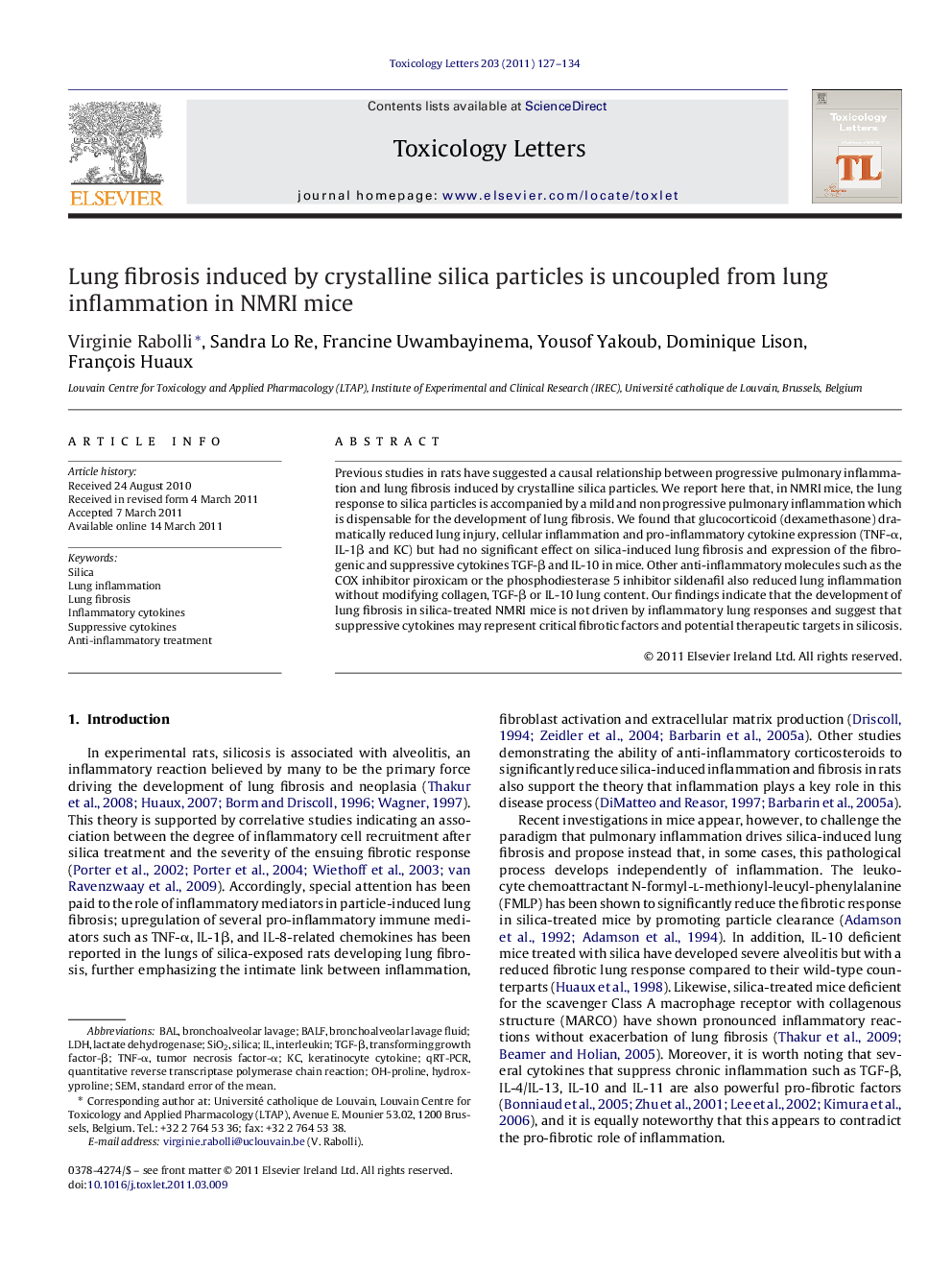| Article ID | Journal | Published Year | Pages | File Type |
|---|---|---|---|---|
| 2600120 | Toxicology Letters | 2011 | 8 Pages |
Previous studies in rats have suggested a causal relationship between progressive pulmonary inflammation and lung fibrosis induced by crystalline silica particles. We report here that, in NMRI mice, the lung response to silica particles is accompanied by a mild and non progressive pulmonary inflammation which is dispensable for the development of lung fibrosis. We found that glucocorticoid (dexamethasone) dramatically reduced lung injury, cellular inflammation and pro-inflammatory cytokine expression (TNF-α, IL-1β and KC) but had no significant effect on silica-induced lung fibrosis and expression of the fibrogenic and suppressive cytokines TGF-β and IL-10 in mice. Other anti-inflammatory molecules such as the COX inhibitor piroxicam or the phosphodiesterase 5 inhibitor sildenafil also reduced lung inflammation without modifying collagen, TGF-β or IL-10 lung content. Our findings indicate that the development of lung fibrosis in silica-treated NMRI mice is not driven by inflammatory lung responses and suggest that suppressive cytokines may represent critical fibrotic factors and potential therapeutic targets in silicosis.
